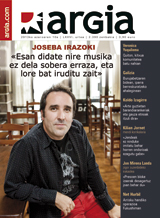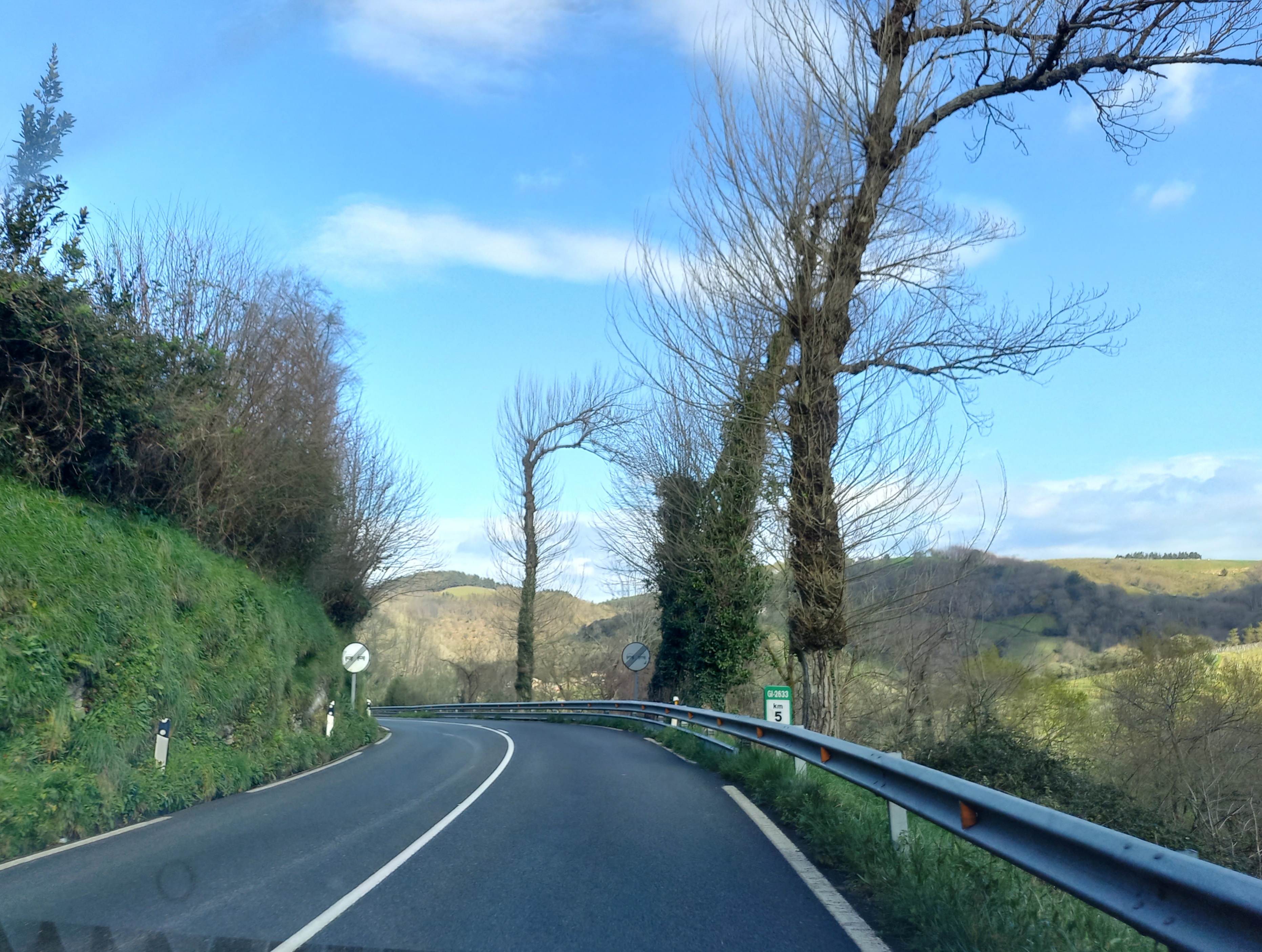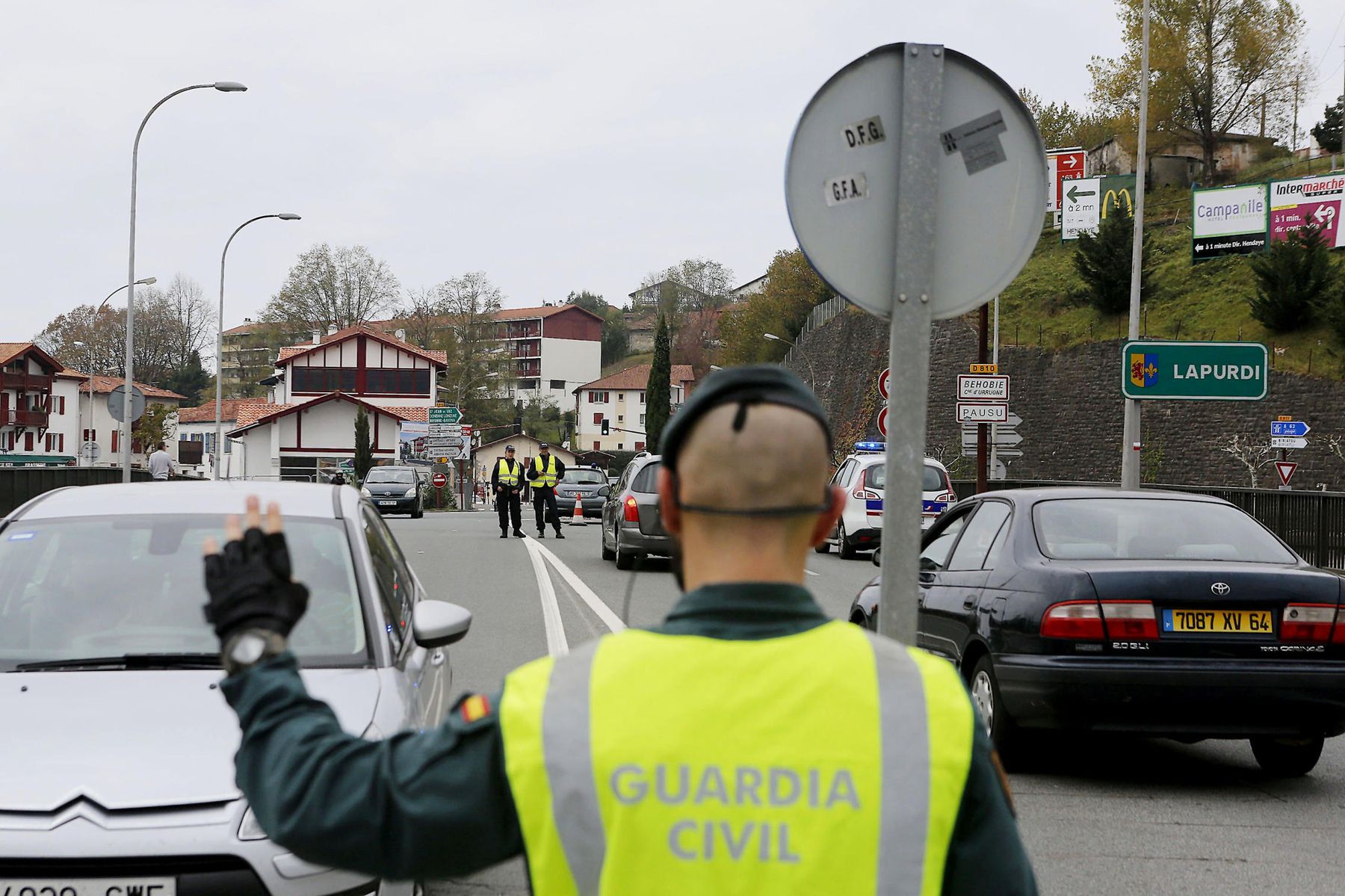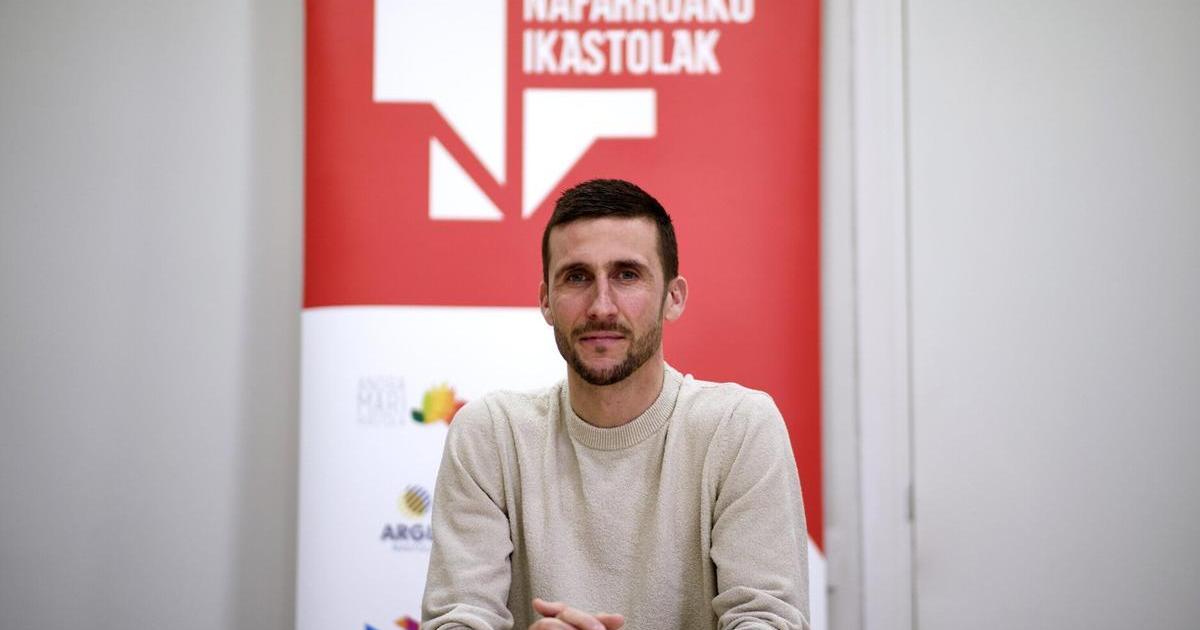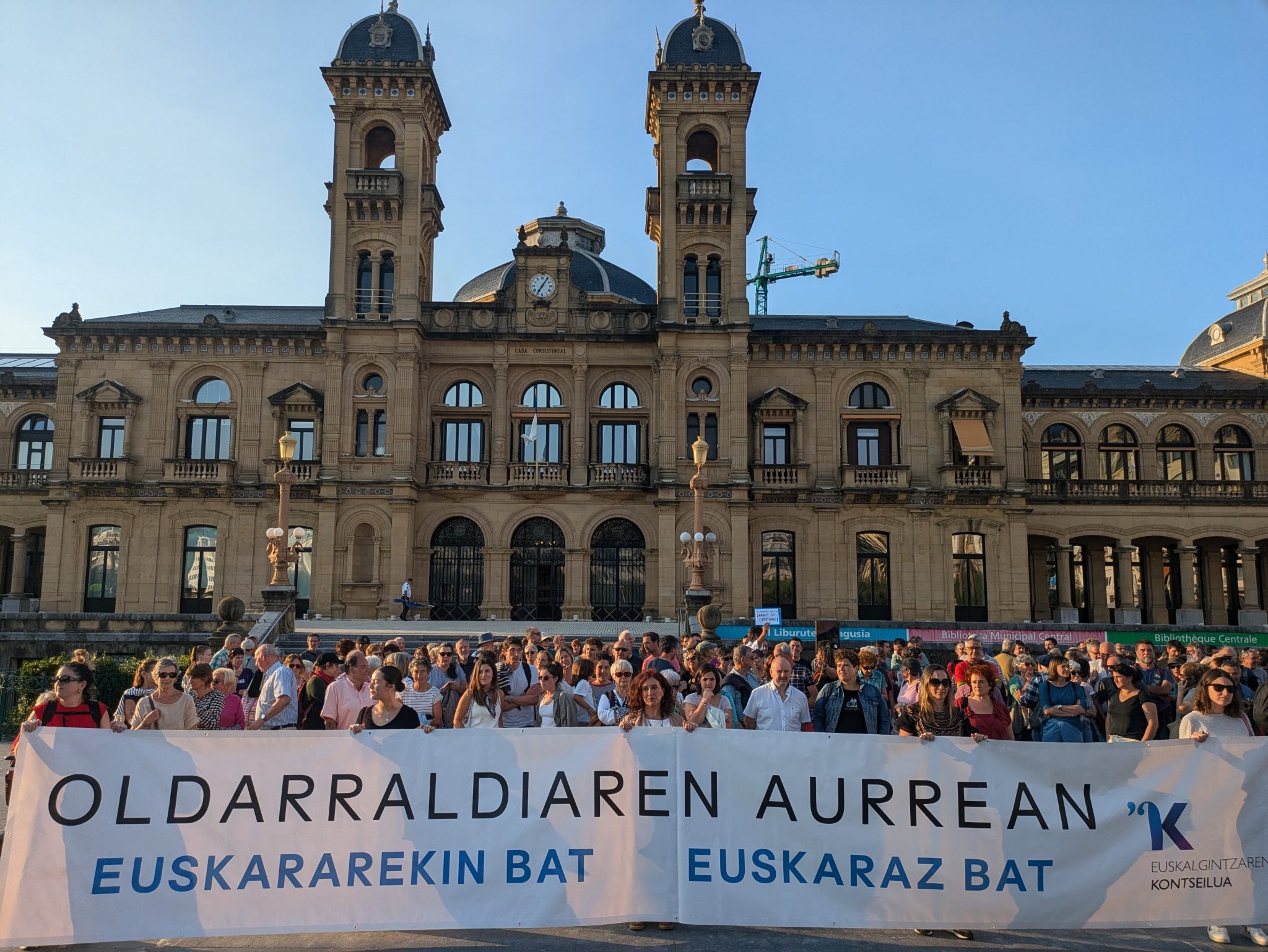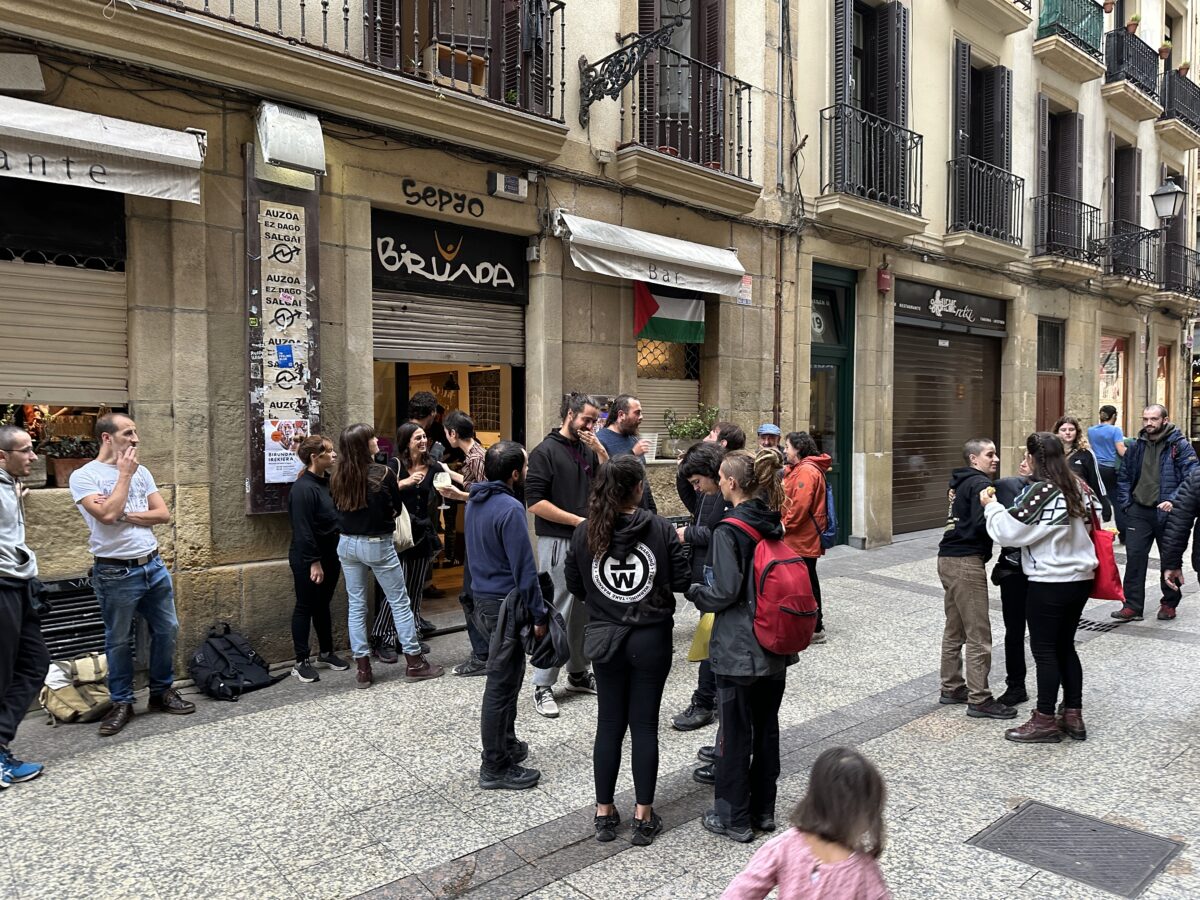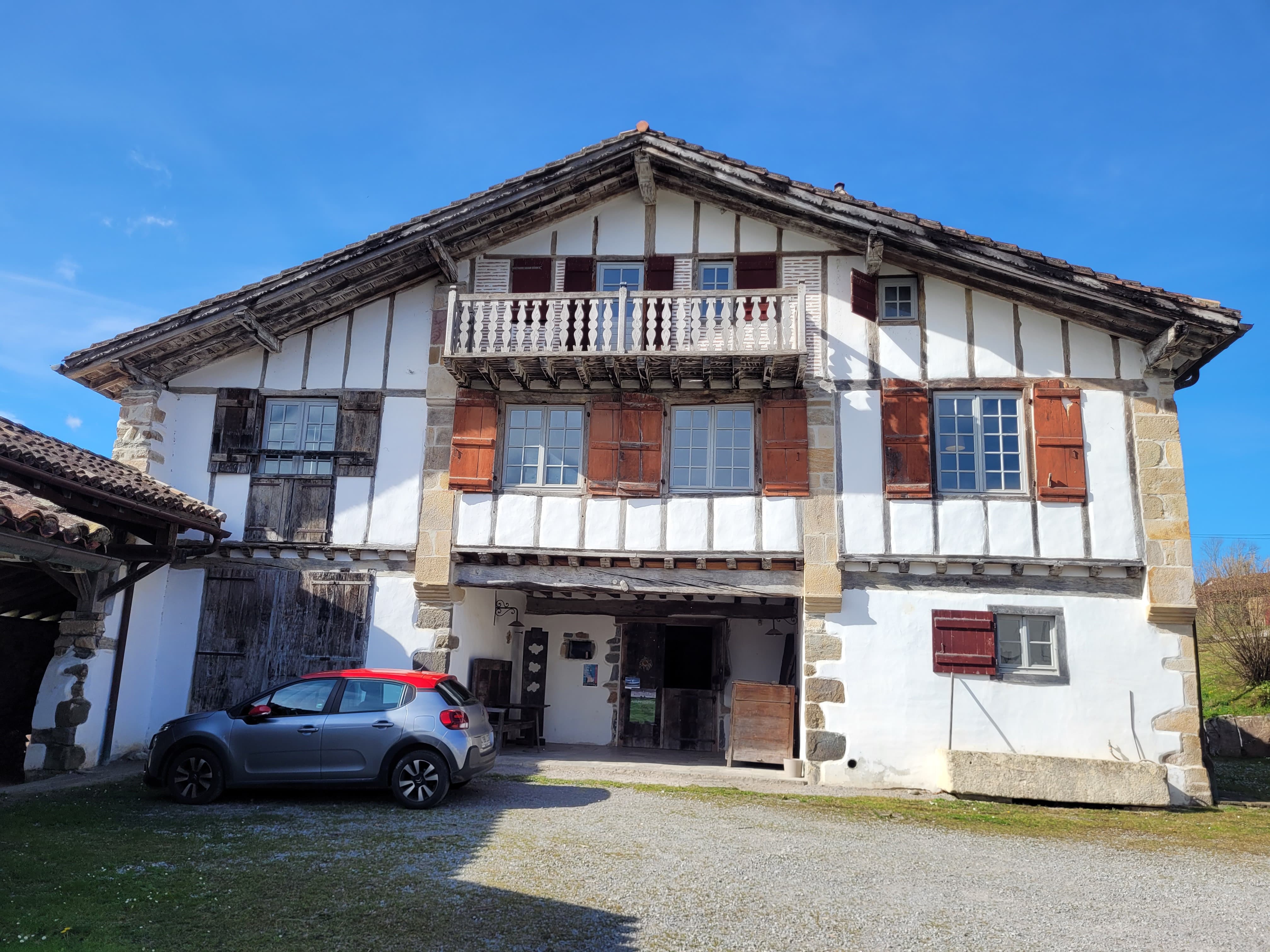"San Sebastian doesn't know what his problems are."
- Koldo Izagirre lives in Paris, in the Marrutxipi district. And he has published a collection of poems from Paris – that is, from San Sebastian – to Berlin – that is, to the other Donostia –:I live in Paris (Susa). We have begun to talk about the book that he has written from the border of the city and political, urban and personal issues have come out on the way.
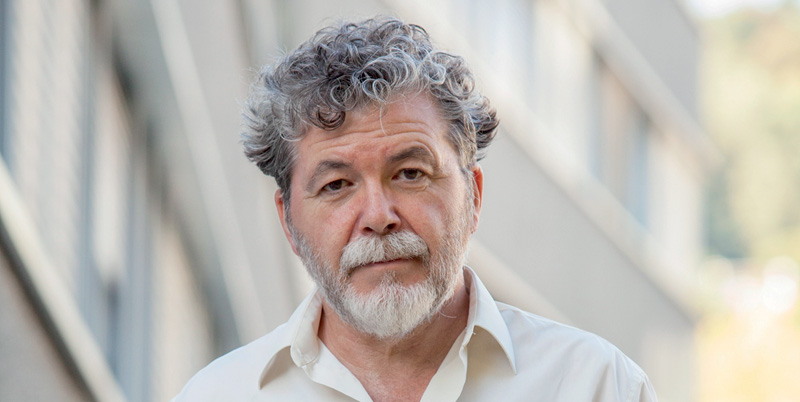
I live in Paris, but in the poem of the same name you're talking about San Sebastian. Criticism of beautification?
Belle Epoquea brought bright, interesting and decadent things, but Donostia hasn’t escaped from it. It's completely monarchic in its style, in its parties and in its fears: for example, in the fear of young people and neighbors. It does not mean that he is Spanish and fond of King Juan Carlos I, but that the monarchic style is expanded, not only in urbanism, but also in many of his acts.
Jon Sarasua, in his latest book, asks what he would lose if the San Sebastian Film Festival were taken away. In his opinion, not much: some sectors yes, but the city not as a city. However, when Juan Karlos Izagirre introduced the last Quincena Musical, he said: “The Film Festival, the Jazz Festival and the Quincena Musical are the foundations of the culture of San Sebastian.” Therefore, [laughs] San Sebastian is still monarchic, also with Bildu.
I appreciate Juan Karlos Izagirre, but they cannot. They have something that cannot be broken. A critical reading of its history, the social history of San Sebastian, remains to be done and assumed. And as long as that is not done, it will have no personality, it will always be monarchic.
Can the concerted personality mentioned in the poem Donostia emerge from this critical history?
At least the conflict is. A real conflict. San Sebastián does not know or does not want to know what its problems are. Two hundred years ago that they smoked, some efforts have been made to set up a new historiography… It has destroyed everything that had a trace of worker and popular throughout its municipality. The eye cannot recover memory.
Haven't you been a little more indulgent in the poem dedicated to Bilbao?
Yeah, sure. There is some rather harsh copla on the current Bilbao, anyway. I belong to a working family and have lived in the world of workers. I admire those people, I certainly have an idealized view. If Bilbao had it, San Sebastian has nothing, has nothing, has no fishermen anymore.
In addition, as José Antonio Agirre said, “Bilbao does not give up.” It was a city that resisted and I have it mystified. Whether I like it or not I like what you have done now, I know where I am going when I go to Bilbao, I am not disappointed. San Sebastián yes.
“They make me the role of not understanding as if I were speaking in Basque.” The Gipuzkoan capital is far from being the capital of the Basques.
Yes. I admire the Catalans because they have Barcelona. Catalan writers who don't live there hate it, they say that in order to publish it you have to go there. But it's OK to have such a center, with all its discomforts.
It happens with San Sebastian, who many times you expect something and don't give it to you. It's readily available for everything, and then it doesn't come, it doesn't segregate. And underneath, there's a lot of flying youth, but there's something, a glass ceiling that doesn't let go above.
Some poems note the nostalgia for social transformation that did not reach the young generation of the 1970s. Are we losing what was not won then?
In the 1970s, there was a lot of hope. We asked ourselves universal questions and tried to give universal answers. So Marxism was so much discussed. Political divisions also took place on the left, for reasons of substance. That generation gave it all: jail, death, armed struggle, getting dirty... But the elections came and then the revolutionary became a politician, and there came the loss. Monitoring, policy ... Although the HB is left out and it is very interesting to learn how to carry out an extra-parliamentary struggle with all its errors.
Then consumerism, which I and my crew learned in Marcus's books, has come true, and television's on in the Herriko Tabernas. Now comes another thing [laughing] and we will have to walk on the sidewalk.
That's what the inner rhyme of the poet syndicate talks about, isn't it?
Yeah, I did it from an anecdote. I converted what was a textual anecdote in space. In Errenteria, a demonstration yelled “in-de-pen-dentzi!”. One of the responsible people ran by saying it wasn't a motto, it wasn't a subject.
What was the demand for the demonstration?
It was national, not municipal. It is very significant: we have gone from criticising the law and acting extra-parlamently to fear the illegalisation. Is that understandable? Yes. Is it politically effective? It's for discussion.
In the arts, the wager of this generation was also very different from what is now the dominant one.
The same thing has happened, it has gone back. We wanted to be at the forefront, we had the concerns of all the young people and it was our job to break with the official art; Barandiarankeria and ethnic things... They've all come back. There is an official autonomic art, which is seen in all the stems; in all the bars ethnicity has prevailed, dancing, painting; in the theater the easy comedy...
He has recovered some previously published articles for this book. Why?
At first I intended to make some small attempts, but I didn't like it, they didn't go beyond the level of the article. I quit the project, but I had the notes collected, because for some time I was curious to know the influence that urbanism has on our life, on our language... And all of a sudden, those notes started to take the form of a poem, I started to feel a little bit comfortable, and so I kept the papers, believing they were going to the point.
In the poem Jose Manuel Enea you write about the restoration of a house and how in that work the number represents the word. Does the dehumanization of the city begin from the buildings?
After all, there is also fear of the word. See the word as something that's overridden. I remember that about ten years ago there was a proposal in Pasaia to change the names of the streets. He went back, but a survey was done in a magazine, in Branka, and one of the respondents, I think he was a professor, said the best thing to avoid arguments was to put numbers on the streets like in America. Here we are: on the one hand it is a joy, the word has something annoying ... May that be true!
There are also some friends that I live in Paris: Ibon Sarasola, Ramón Saizarbitoria...
Well, there's a Ramon on the Kursaal bridge ... A gesture to Le pont Mirabeau, from Apollinaire. This is a writer who goes down the bridge, with other bridges in his head and meets people, with his nose in the water, with his head in something else. It is a tribute to our profession, to the writer. And that writer is called Ramón [laughing].
Instead, Ibon Sarasola has been blamed.
It is also a small tribute. The image mentioned in the poem stuck in my head, “I am young: / I have broken the moon by stones.” I was 16 years old and I found it a powerful image. Sarasola Poemagintza is a forgotten book, a beautiful book; it is worth republishing with a small introduction.
RH: You've written with humor about "erre hatxe ezkorra." Do we carry the fight in the blood?
I smoke a positive axe [laughing]. The truth is that Xaka Kortaxarena, which I found to be a genius, comes from a book by Txomin: I saw it in a betrayal, the negative RH of the Basques. It is a collection of articles by biologists and physicians of Basque origin translated by himself, without a scientific term of Latin roots, all with words of Basque origin, a great merit. The title seemed great to me and caused me a poem.
We are small, we are few, we are as we are, we have taken a lot of tremendous defeats, but there we are. Militant pessimism is always positive. Optimism brings us to comfort. It's a shrimp poem, but at the same time I think that at least an interesting part of our personality is that, "to ripen, another scourge!" It's to take the hair of all those who sell us a fascinating future.
In the last poem, Paris becomes Berlin.
The Paris-Berlin is an impossible axis and I found it interesting that this clash should appear symbolically. And perhaps I wanted it to be made clear that I do not live in Paris, that I also live in Berlin. What would be the ideal city? Symbiosis of both: In Paris, decadence and classical elegance and in Berlin an innovative, free and more rational force. Rational in that case. It is a city that has been able to rebuild, unlike San Sebastian.
Goizean jaiki orduko hasten dira desegokitasunak. Beharbada lotarako erabili duzun lastaira ere ez zen egokiena. Baina, ezin ba idatzi desegoki sentiarazten nauten guztiez. Horregatik, udaberriko ekinozioa –egunaren eta gauaren arteko oreka– dela eta, oraindik ere,... [+]
Guardia Zibilaren historia bat - Hemendik alde egiteko arrazoiak izenburupean, datorren astean argitaratuko dugun 305. LARRUN aldizkariaren pasarte batzuk dira ondorengoak, erakunde armatuaren sorrera garaietan girotutakoak.
Rosa Zarra Ertzaintzaren pilotakada baten ondorioz hil zela da Eusko Jaurlaritzako Poliziaren Biktimen Balorazio Batzordeak atera duen ondorioa, Berria-k jakinarazi duenez. Orain arte, Ertzaintzak beti egin dio uko bertsio horri, eta Rosa Zarra berak zuen gaixotasunaren ondorioz... [+]
Nafarroako Ikastolen Elkarteak lehendakari berria du. Oier Sanjurjok hartu dio lekukoa Elena Zabaleta Andresenari. Beste zazpi kide izanen ditu alboan Sanjurjok.
ELA sindikatuak azaldu duenez, azken Lan Eskaintza Publikoaren oinarrien arabera, Ertzaintzarako eskainitako lanpostuen %20ak eta Udaltzaingoaren %30ak ez daukate euskara-eskakizunik. Gasteizen, adibidez, udaltzain-lanpostuen erdietan, 24tan, ez dago euskara-eskakizunik.
Ustez, lokalaren jabetza eskuratu dutenek bidali dituzte sarrailagileak sarraila aldatzera; Ertzaintzak babestuta aritu dira hori egiten. Birundak epaiketa bat irabazi du duela gutxi.
Inoren Ero Ni + Lisabö
Noiz: martxoaren 14an.
Non: Gasteizko Jimmy Jazz aretoan.
----------------------------------------------------
Izotz-arriskuaren seinalea autoko pantailatxoan. Urkiola, bere mendilerro eta baso. Kontzertuetara bideko ohiko errituala: Inoren... [+]
Euskalgintzak Senpereko Larraldea etxea faltan botako du. Uda gabe, Bertsularien lagunak, bertan gelditzen den azken elkarteak, lekuz aldatuko du eta etxea hetsiko dute. Euskararen, euskal kulturaren eta arteen ohantzea izan da Larraldea, urte luzetan Andoni Iturrioz mezenasak... [+]
Txinparta izeneko prozesua Martxoaren 21ean hasiko da eta urte bete iraungo du. "Udaberriaren hasierarekin batera proiektu herritar berri bat" aurkeztu nahi dutela adierazi dute.
PP, Vox, Junts eta EAJren botoekin Espainiako Kongresuak onartu du otsoa espezie babestuen zerrendatik ateratzea eta, horren ondorioz, berriz ehizatu ahal izango dute Duero ibaitik iparrera.
Berrogei urte dira Euskal Herrian autismoaren inguruko lehen azterketak eta zerbitzuak hasi zirela. Urte hauetan asko aldatu da autismoaz dakiguna. Uste baino heterogeneoagoa da. Uste baino ohikoagoa. Normalagoa.









